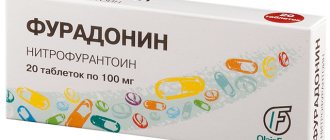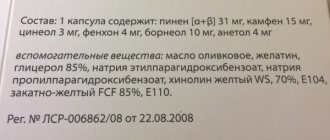Zyban is an atypical antidepressant used to treat disorders of the emotional-volitional sphere. Another point of application for Zyban is the treatment of nicotine addiction. Thanks to a special mechanism of action on the central nervous system, the drug makes it easier to quit smoking.
pharmachologic effect
The pharmacological action of zyban is due to the effect of bupropion on the body. Bupropion is not a homogeneous substance in its composition. In the body, it breaks down into several metabolites, each of which has its own effect on the cells of the central nervous system.
Bupropion is a selective norepinephrine and dopamine reuptake inhibitor. This means that the drug prevents the entry of the listed mediators from the synaptic cleft into the neurons. At the same time, the concentration of these substances increases and they more often bind to neuron receptors, which are also located in the synaptic cleft. The more dopamine and norepinephrine affect the receptors, the better the patient feels.
The development of depression is associated with a decrease in serotonin, norepinephrine and dopamine in the brain. Bupropion increases the concentration of the last two mediators, which helps improve mood. However, these are not all the effects of the drug.
By acting on dopamine receptors, bupropion reduces hunger and helps combat obesity more effectively. In addition, the substance helps cope with nicotine addiction. Bupropion is able to bind to nicotine receptors, thereby deceiving the brain and helping to quit smoking tobacco.
Indications, side effects, drug interactions, doses
Zyban is used for the purpose of:
- Complex therapy and prevention of depressive conditions.
- Social phobias.
- Nicotine addiction.
- Sexual dysfunction of depressive origin.
- Obesity.
- Seasonal affects.
- Lack of concentration and attention.
It is this polyetiological nature of the prescription that explains many of the side effects of the drug:
- Irritability.
- Apathy.
- Symptoms of intoxication.
- Dyspepsia.
- Migraine.
- Fainting.
- Cachexia.
- Sweating.
- Convulsive, epileptic syndrome.
- Hives.
- Insomnia.
- Tides.
- Asthenia.
- Quincke's edema.
- Asthmoid bronchospasm.
- Memory losses.
- Dysuria.
- Loss of coordination.
- Depersonalization.
Drug compatibility
The human body has a special gene, CYP2D6, which is a metalloprotein and is responsible for the metabolism of 25% of all known drugs, including antidepressants.
If you take medications together with Zyban that also require participation in the utilization of this gene, the patient will develop slow metabolism syndrome. This will significantly slow down the clearance of drugs and lead to an inadequate response to the administered dose of medication. Therefore, the following are not prescribed simultaneously with Zyban: Clopidogrel, Orphenadrine, Cyclofosamide and many other drugs of these groups.
Zyban blocks the CYP2D6 gene isoenzyme, and therefore it is not combined with beta blockers, selective serotonin reuptake inhibitors (SSRI group), antiarrhythmic and antipsychotic drugs, cytochrome inhibitors (Ritonavir, Phenytoin, Phenobarbital).
Particular caution should be exercised when combining Zyban with drugs against Parkinson's disease (Levodopa, Amantadine), as there is a possibility of developing psychoneurotic conditions.
Bupropion cannot be combined with Nicorette drugs for transdermal delivery of nicotine into the body, as it provokes an increase in blood pressure.
If before the course of Zyban the patient was treated with antibiotics or tranquilizers, the light period should be at least two weeks. During this time, previously taken medications will be completely eliminated from the body naturally.
Dosage
Zyban is taken once a day, in the morning, 1 tablet (150 mg), daily maximum 300 mg. In rare cases, if a double dose of the drug is unsuccessful, increase the dose to 450 mg.
The course of treatment is more effective with long-term (more than a year) use of the medicine.
At the initial stage of renal and liver failure, the drug is taken with caution, increasing the interval between doses.
Overdose
More than 600 mg per day is considered an overdose, which gives a pronounced clinical picture: arrhythmia and rapid heartbeat, desire to sleep, high blood pressure, nausea, allergic rashes, epileptic seizures, lethargy, apathy, delirium, visions, coma.
These are serious events that should be avoided as there is no antidote for Zyban. Use detoxification.
An overdose may occur on the third day after taking the drug. In the hospital, the state of the brain is monitored using encephalography. Death occurs rarely, more often from complications: acidosis, hypoxia, cardiac arrest.
This happens when an overdose of a drug to relieve an epileptic attack occurs.
Indications
Many studies have been conducted to determine the effectiveness of Zyban in the treatment of a particular pathological condition. As a result, diseases for which it is advisable to prescribe this drug were identified. These diseases include:
- First episode of mild to moderate depression;
- Recurrent depressive disorder;
- Bipolar affective disorder, current episode of depression;
- Nicotine addiction;
- Obesity;
- Decreased libido, including those caused by other antidepressants;
- Attention deficit hyperactivity disorder in adults.
Zyban has not been proven effective for other mental disorders. For example, a study conducted on reducing anxiety showed that Zyban does not have an anti-anxiety component. However, in some cases it can be used for social phobias.
Contraindications
Zyban should not be prescribed for the following conditions:
- Epilepsy;
- Nervous tics, including Tourette's syndrome;
- Benzodiazepine tranquilizer withdrawal syndrome;
- Eating disorders;
- Oncological diseases of the brain;
- Arterial hypertension of the third degree;
- Renal or liver failure in the stage of decompensation;
- Childhood and adolescence.
In addition, taking Zyban with monoamine oxidase inhibitors is prohibited. There should be a gap of two weeks between taking these medications.
Side effects
Side effects of Zyban mainly affect the nervous system. The most common of these are epileptic seizures, tics and hand tremors. The drug is especially dangerous for patients who already have seizures or other neurological disorders.
Another common complication is headache, dizziness, and nausea. These symptoms develop in the first days of use and soon disappear. Approximately 1% of those taking the drug may develop arterial hypertension, most often its isolated systolic variant. It does not matter whether the patient had this disease before taking it or not.
A rare side effect of Zyban is galactorrhea, which is the secretion of milk from the mammary glands outside of pregnancy or lactation. Another rare complication of treatment with this drug is toxic liver damage.
With long-term use of Zyban and sudden cessation of treatment, withdrawal syndrome is possible. Other side effects are currently unknown; post-marketing studies of the drug are currently underway to expand this list.
Mechanism of action, instructions, contraindications
Zyban has medicinal properties, which is confirmed by numerous tests of the drug in the USA and the European Union. Its active substance affects precisely the process of development of cravings for smoking, affecting special centers of the brain responsible for pleasure.
Bupropion stimulates the production of dopamine, the happiness hormone, blocking its natural neutralization after quitting cigarettes. In this way, support for the smoker is achieved at the most difficult moment for him.
Recharge with Zyban reduces discomfort to a minimum, providing psychological stability.
In other words, treatment with the drug, not being nicotine-dependent therapy, does not help maintain the concentration of cigarette poison in the blood, but affects brain structures, simulating the level of pleasure characteristic of a smoked cigarette. Therefore, quitting smoking with Zyban is quite easy. This effect makes it the drug of choice for many experienced smokers.
Instructions
Self-administration of the drug is prohibited. It should be noted that injectable Cypriot antibiotics of the Ceftriaxone group are sold on the Russian market under the name Zyban, which can also be purchased in pharmacies without a prescription.
Therefore, before purchasing the drug, consultation with a specialist is mandatory.
There is no standard treatment regimen, but the basic rules of administration are specified in the instructions for use of the drug Zyban:
- Usually the drug is prescribed once a day, but in any case, the recommended interval between doses is 10 hours (minimum 8).
- Missing an appointment does not affect the selected treatment schedule.
- Doubling the dose is excluded, since it is fraught with the development of negative symptoms: shortness of breath, fainting, hyperhidrosis, visions, tachycardia, dyspepsia, loss of visual acuity, blurred contours of objects, irritability, dizziness.
- Swallow the tablet without chewing, wash it down with water both during and after meals, at any convenient time.
- The minimum course of treatment is 21 days.
Contraindications
Like any antidepressant, Zyban has strict limits. It is not prescribed for:
- Pregnancy and lactation.
- Mental disorders.
- Epileptic seizures and tendency to convulsions.
- Severe impairment of liver and kidney function.
- Allergies and individual intolerance to the components of the drug.
- Brain tumors.
- Lack of appetite with exhaustion and overeating.
- Combination with alcohol, drugs, and other medications due to a decrease in resistance to ethanol and a decrease in the convulsive threshold of the central nervous system.
- Somatic disorders: diabetes, hypertension, heart and vascular diseases.
- if the patient's age is under 18.
Instructions for use
Zyban is recommended to be used twice a day. The half-life of the drug is less than 24 hours, so it is fundamentally important to divide the daily dose into two doses 12 hours apart (see chart). Treatment should begin with a minimum dosage of 300 mg. To do this, just take one tablet in the morning and one in the evening.
Within two weeks, the dose can be increased to 450 mg per day. In this case, you can take two tablets in the morning and one in the evening, or two in the evening and one in the morning. You can also divide the tablet and take one and a half tablets in the morning and evening.
If necessary, after another two weeks the dosage can be increased again. The maximum permitted amount of the drug consumed per day is 600 mg. This level should not be exceeded due to the risk of side effects.
The drug can be taken regardless of meals. The tablets should be taken with a small amount of water.
The drug does not affect sleep and wakefulness. There are no restrictions on driving any type of transport. There is evidence of the development of dependence on Zyban and the occurrence of withdrawal syndrome when stopping its use. To eliminate the risk of developing this syndrome, you should stop drinking the drug gradually. You should start by reducing the dosage by 150 mg once every two weeks until you completely stop taking the drug.
Application diagram
The medicine can be taken only as prescribed by a doctor. The course of therapy consists of 2 stages. First, the patient must take 30 tablets, then 90. The first stage lasts approximately 2 weeks. The second course of treatment lasts about 6 weeks.
To avoid a break between courses of therapy, you need to buy 90 tablets in advance. This will give confidence in strict adherence to the treatment regimen.
If insomnia occurs during therapy, it is not recommended to take the medicine at night. People who take 2 tablets per day are recommended to take one of them early in the morning and the second in the afternoon. The interval between taking tablets should be 8 hours.
Reviews
Kirill N .: “I took Zyban while quitting smoking. At first I didn't notice the effect. I wanted to smoke just as much as before, even my irritability increased a little. But I only had to hold out for a week, then the effect of the drug appeared. This is usually the hardest time, but Zyban helped me overcome it with ease. I almost didn’t want to smoke, I finally quit.”
Psychiatrist : “The use of Zyban in our country is very limited. This is a new drug that has a different mechanism of action from other drugs. It has not yet been studied enough and its use raises some concerns for the health of patients. In addition, the cost of the drug does not allow it to be used to treat most patients. At the same time, American colleagues are successfully introducing Zyban into their practice, so we can soon expect its distribution on the domestic pharmaceutical market.”
Content
Reviews about the effect on sleep
Drugs containing bupropion have virtually no effect on sleep. Reviews of Zyban from some smokers report that they experienced drowsiness in the first days of taking it, but then it went away.
The fact is that each person’s nervous system is individual. And in such a difficult period as giving up alcohol or drugs, sleep problems are quite natural. So it is difficult to say what exactly is the cause of increased drowsiness in some cases - starting to take the drug or quitting nicotine.






